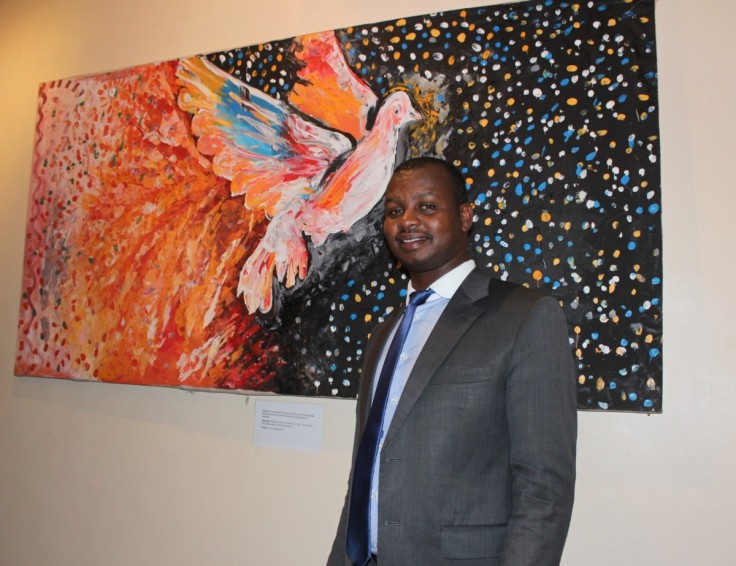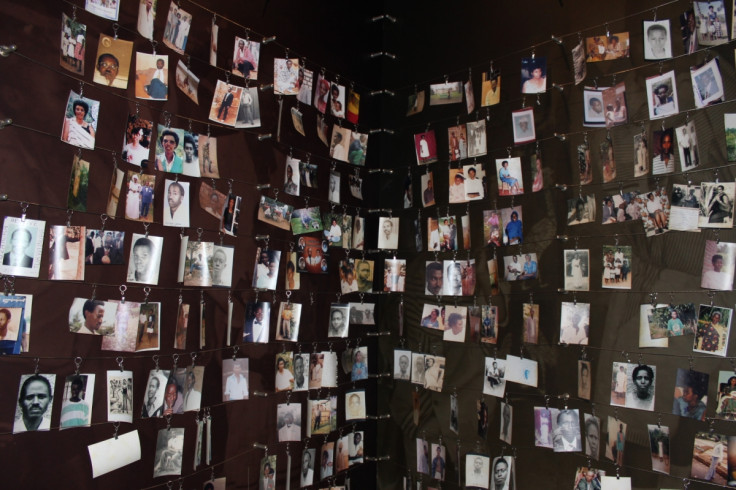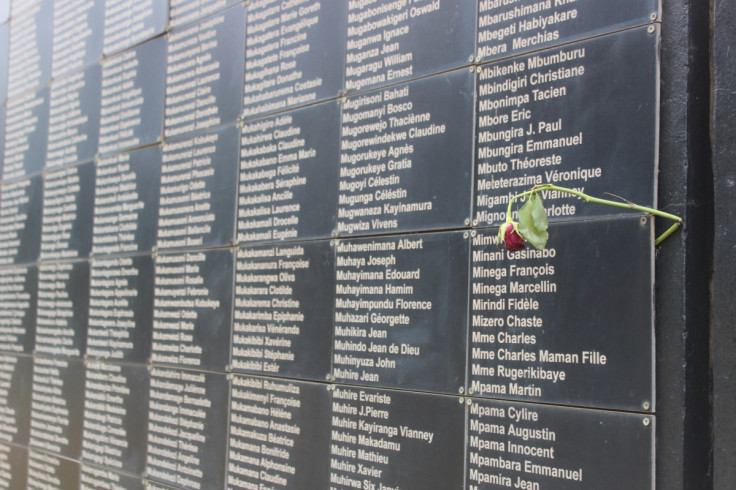Rwanda genocide anniversary: Children told perpetrators 'I will never be a Tutsi again'

The trouble with memorials is that they tend to make you remember things. Things that are sometimes better forgotten. "I listened to children asking for forgiveness and saying to their perpetrators: 'I will never be a Tutsi again,'" Freddy Mutanguha, 40, recalls in conversation with IBTimes UK at the genocide memorial in Rwanda's capital Kigali.
Mutanguha is from the Tutsi ethnic group and, even before the genocide that erupted in the African nation in 1994, he and his family had experienced ethnic persecution during the totalitarian regime of Juvénal Habyarimana. When in April 1994 the plane that carried Habyarimana and Burundi President Cyprien Ntaryamira was shot down near Kigali International Airport, a genocide against the Tutsis ravaged the landlocked nation, which is marking the 22nd anniversary of the brutal outbreak of violence.
In the aftermath of the fatal plane crash, people from the Hutu ethnic group, armed with machetes, guns and grenades, stormed the house of every Tutsi family whose names featured on lists prepared months before the genocide, during which Hutu groups had been trained to become fighters by the paramilitary organisation Interahamwe, meaning "those who work together". The organisation left Rwanda, and sheltered in DR Congo in the aftermath of the ethnic cleansing.
Mutanguha was 18 when between 800,000 and 1 million people – Tutsis and moderate Hutus who refused to take part in the killings – were hacked to death over a period of three months. "I saw everything, I watched everything. I saw how my family was wiped out and this cannot leave my head and I always think about it. I saw many other people being killed in groups, my eyes saw so many deaths," he said.
I escaped from my area in the Western Province and I ended up walking for two months, without sleeping in a house, without changing my clothes, stealing some food to survive.
"I listened to children crying and begging their perpetrators. Then I met the march of death as I escaped from my area in the Western Province and I ended up walking for two months, without sleeping in a house, without changing my clothes, stealing some food to survive.
"That struggle for life continued afterwards because I went to Kigali, where I did not know anyone and I did not know where to stay. This is one of the fresh memories I have. I raised myself and I got help and here I am," he added.

The importance of memorials
Today, Mutanguha is the regional director of Aegis Trust, which works to prevent genocide, crimes against humanity and mass atrocities worldwide. Through a partnership between Aegis and Kigali, the Kigali Genocide Memorial was built in the Gizosi district in 2004.
The corpses of more than 250,000 people who died in the massacres are buried at the memorial, which also displays some of the weapons used during the genocide, pictures of those who were killed and an area dedicated to other genocides that occurred around the world.
"Rwandans are learning from the mistakes that led to the genocide and memorials like this play a significant role in this way," Mutanguha said. "When you come to this place you feel it's talking to you because you get to learn about the past but also get into conversation about the future."
Aegis also works with government and the National Commission for the Fight against Genocide to prepare events to mark the genocide commemoration on 7th April.
"The commemoration helps me to go back into conversation with my family even if they are not there. It helps me to be with them again and feel their comfort. I go to the graves of my mother and my relatives and I say what I want to tell them, and I feel this conversation is real, and they are listening to me. Unfortunately – this is the difference between life and death – they won't respond to me but I feel they listen," Mutanguha said.
"This is a psychological comfort for me. It is also about memories, it is a legacy of what they left behind, of what they said, the lives they had been living. My job is not easy because I am talking about my own story and most of the times, when I speak, I may have flashbacks. It is a bad story but it is a good lesson I want to share with my children and people I meet, so that we can all reflect about our past."

More from IBTimes UK
© Copyright IBTimes 2025. All rights reserved.






















